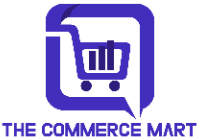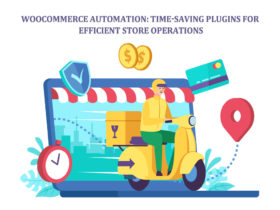As an online shopper, I love when e-commerce websites suggest products that fit my personal style and preferences. It makes me feel like the website knows me and my tastes. And apparently, I’m not alone. According to a report by Epsilon, 80% of consumers are more likely to make a purchase when brands offer personalized experiences.
The rise of personalized e-commerce products and their rapid development into a game changer for the online shopping industry. In the following piece, we’ll delve into the significance of personalization in the realm of e-commerce. We’ll examine how providing customized products can be advantageous, explore various personalized e-commerce product options, and showcase some examples. Additionally, we’ll discuss how to integrate personalization into your online business while considering potential challenges. Furthermore, we’ll take a peek at what’s in store for personalized e-commerce products down the line and highlight some successful case studies of e-commerce businesses that have implemented personalization effectively.
Understanding the Importance of Personalization in E-commerce
Personalization is about offering a tailored experience to each individual customer, based on their browsing and purchasing history, preferences, and demographics. To strengthen customer loyalty and increase sales, personalized e.commerce products give customers a more personal connection with the company’s brand.
Personalization is becoming more and more easy, given the era of large amounts of data. E-commerce companies can collect large quantities of customer data, such as visit history, shopping behavior and demographic information. This information can be used by enterprises to develop personalized product recommendations, specific offers and each customer’s personal shopping experience that considers his or her particular preferences.
Benefits of Offering Personalized E-commerce Products
Offering personalized e-commerce products can benefit your business in numerous ways. Here are just a few examples:
- Increased customer loyalty: Customers will have a better chance of returning to your website for further purchases when they feel taken care of and treated well.
- Higher conversion rates: The likelihood of a customer making a purchase is increased by the personalized product recommendations, as they are more likely to see products that interest them.
- Improved customer satisfaction: By offering personalized products, customers feel valued and appreciated, leading to a more positive overall shopping experience.
- Increased revenue: With higher conversion rates and customer loyalty, personalized e-commerce products can lead to increased revenue for your business.
Types of Personalized E-commerce Products and Examples
There are many types of personalized e-commerce products, and they all serve different purposes. We’ve got some examples here:
- Recommendations: This is the recommended products that customers may be interested in as a result of their visit and purchase history.
- Customizable products: These are products that customers can personalize and make their own, such as personalized phone cases, custom t-shirts, or engraved jewelry.
- Personal discounts and promotions: these are specific offers available to each customer, e.g., a discount for products that they already have an interest in.
- Personalized emails: These are emails that are personalized to each individual customer, such as a welcome email that addresses them by name and offers product recommendations based on their browsing history.
Implementing Personalization in Your E-commerce Business
It may seem difficult to implement personalization in a business of e-commerce, but it can be done. To get started, here are a few steps:
- Check customer data: gather as much information on your customers, including their browsing and buying history, demographic characteristics or preferences.
- Use a personalization platform: Use a personalization platform to analyze the customer data and create personalized product recommendations and shopping experiences.
- Test and iterate: Test your personalized products and shopping experiences, and make changes as necessary.
- Continuously improve: Continue to collect customer data and improve your personalization efforts over time.
Challenges and Considerations for Personalized E-commerce Products
While there are many benefits to offering personalized e-commerce products, there are also some challenges and considerations to keep in mind. Here are a few examples:
- Privacy concerns: Collecting customer data can raise privacy concerns. Transparency in the collection and use of data is important.
- Data accuracy: Personalization efforts rely on accurate data. If the data collected is inaccurate, the personalized product recommendations may not be effective.
- Implementation costs: Implementing a personalization platform and analyzing customer data can be costly.
- Technology limitations: Some e-commerce platforms may not have the necessary technology to implement personalized e-commerce products.
- Cultural differences: Personalization efforts may not be effective in all cultures, as some may prefer a more standardized shopping experience.
The Future of Personalized E-commerce Products
The trend of personalized e-commerce products is likely to continue growing in the future. In the coming years, e-commerce businesses will be capable of gathering more customer data and offering even more personalized products and experiences thanks to continued advances in technology.
The personalization effort is also going to be more precise and effective, given the rise of artificial intelligence and machine learning. Businesses will be in a position to provide even more personalized experiences for each of their customers.
Case Studies: Successful E-commerce Businesses that Offer Personalized Products
Several e-commerce businesses have successfully implemented personalized products and experiences. Here are a few examples:
- Amazon: Amazon’s personalized product recommendations are one of the most well-known examples of personalization in e-commerce.
- Stitch Fix: Stitch Fix offers personalized styling services, where customers receive a box of clothes tailored to their personal style and preferences.
- Nike: Nike allows customers to customize their shoes with different colors and materials, creating a personalized product that is unique to them.
Tools and Strategies for Personalizing E-commerce Products
Implementing personalized e-commerce products requires the use of specialized tools and strategies. Here are a few examples:
- Personalization platforms: Personalization platforms, such as Segment and Monetate, can analyze customer data and create personalized product recommendations.
- Email personalization: Email personalization tools, such as Mailchimp and Klaviyo, can create personalized emails for each individual customer.
- Customization tools: Customization tools, such as Zazzle and Custom Ink, can allow customers to personalize products, such as t-shirts and phone cases.
Conclusion
Personalized e-commerce products are a rising trend that can have a significant impact on your business. By offering personalized products and experiences, you can increase customer loyalty, improve customer satisfaction, and boost revenue. However, implementing personalization in your e-commerce business requires careful consideration of the challenges and considerations involved. You will achieve a tailor – made shopping experience that keeps your customers coming back for more by using the best tools and strategies.






Leave a Reply